
Carlos sets up his sister’s feeding tube as she naps on her power chair at their home in Tucson, Arizona. (Stephanie Casanova/CALÓ News)
Carlos spends most of his days caring for others — serving meals at a senior living community in southern Arizona, where residents love having him around, and helping his mom look after his 11-year-old sister, who uses a wheelchair for mobility and requires 24/7 care.
The Tucson man, however, is facing a life-altering challenge that could put a pause on that vital care he provides. He is facing potential deportation despite being a beneficiary of the Deferred Action for Childhood Arrivals (DACA) program, which deprioritizes the deportation of people who were brought to the U.S. as children.
The Department of Homeland Security (DHS) is reopening previously closed immigration cases, including those of DACA recipients who are surprised to learn the program may not actually protect them from deportation as it was intended to.
That’s the case for Carlos, who learned in June that his immigration court case had been reopened 14 years after it was administratively closed. CALÓ News has chosen not to disclose his legal name for his safety and that of his family.
“I was kind of in shock,” Carlos said.
He panicked. He wondered, “Why me? Why now?”
Carlos arrived in the U.S. with his mom in 2001, when he was almost 10 years old. He has been protected under DACA since 2012, when the program was first enacted, and, per his most recent renewal, his status is current until March 2026. He is in the process of renewing his status, as he has every two years for the past decade, as required by the program.
On Wednesday, Carlos sat before Judge Gilda Terrazas, who gave his lawyer, Zachary Brugman, until Jan. 7 to file any immigration relief petition Carlos may qualify for.
When Carlos first learned he had an upcoming court date, he consulted with immigration attorney Pamela Florian, who put together a motion asking Terrazas to terminate or administratively close the case once again.
Terrazas on Wednesday told Brugman he could file the motion to close or terminate the case again in January, but not before learning what other relief avenues are available to Carlos, she said during the hearing.
While the DACA policy, created under former President Barack Obama, was designed to allow people to be considered “lawfully present” and obtain documents like a driver’s license and a work permit, it has never provided a path to permanent legal status. To qualify, a person can’t have any felonies, significant misdemeanors or three or more misdemeanors.
In July, DHS assistant press secretary Tricia McLaughlin told NPR in a statement that, “[undocumented] aliens who claim to be recipients of Deferred Action for Childhood Arrivals (DACA) are not automatically protected from deportations."
Home is Here, a coalition of 19 organizations advocating for the rights of DACA recipients and immigrant youth has been tracking cases like Carlos’ where people have either been detained or are facing deportation despite having DACA status. The coalition collects names of people whose stories have been reported in the media. So far, the tracker lists 20 people, not including Carlos.
The motion filed by Forian and reviewed by CALÓ News details Carlos’ case: a DACA recipient in good standing whose mother is awaiting her legal permanent resident card.
According to Forian, he could qualify for relief through his mother.
“He doesn't have a criminal history. He doesn't have any criminal record. Everything is the same since he last renewed his DACA,” Florian told CALÓ News. “It is unfair.”
Florian is not representing Carlos in court. She worked “low bono,” or at a discounted rate, to put together and file the motion in court while Carlos obtained a lawyer.
The document also outlines the many ways in which he helps support his mother as they work together to care for his sister, “who faces multiple medical conditions that make her dependent on Carlos and her mother.”
‘No one loves this country more than Carlos’
Carlos has lived in Tucson most of his life. He graduated from Amphitheater High School and took classes at Pima Community College. In 2014, his sister Nicole was born, changing his and his mother’s lives.
Now 11, Nicole lives with cerebral palsy, Down syndrome, heart defect and asthma, among other medical conditions. She depends on a gastronomy tube (or a G-tube) to eat and drink fluids and relies on a wheelchair for mobility.
Without Nicole’s father in the home, Carlos works full-time to help support his family financially. About 50% of his paycheck goes toward bills, and he helps buy everything from a towel warmer for Nicole’s clothes to menstrual pads and medications for her.
He also helps his mom care for his sister and recently became a certified respite care provider in Arizona to improve the quality of care she receives.

Carlos sets up his sister’s feeding tube as she naps on her power chair at their home in Tucson, Arizona. (Stephanie Casanova/CALÓ News)
“We keep moving forward as a team since Nicole has been in our lives, and it has been the best and hardest years of our lives,” Carlos said in a declaration included in the motion to close his case. “But she is the best thing that ever happened to me and my mom.”
Every morning, they sanitize her toys and replace the sheets in the bedroom she shares with their mother. They feed her every three hours and administer her medications and water through her G-tube. They also provide her with respiratory therapy via a nebulizer. The feeding takes an hour, which means that two hours later they do it all over again. Nicole’s feeding schedule is around the clock, meaning Carlos and his mother take turns waking up in the middle of the night to feed her.
On a recent weekday afternoon, Carlos paused Nicole’s feeding to administer medication through the tube attached through her abdomen to her stomach. Nicole slept on her wheelchair, unbothered as he switched out the formula for medication briefly. He then held a nebulizer mouthpiece near her nose and mouth so she could inhale albuterol, her asthma treatment.
Nature sounds of birds chirping played through a speaker, soothing her as she napped.
His mother held back tears as she thought about what might happen if Carlos were to be deported. She said he has been her biggest support since Nicole was born, especially since her father left when she was only a few weeks old.
“The best outcome for me would be if I could stay here, just be able to keep working and keep living the American dream,” he said. “And obviously help my family, which is probably my most important goal.”
Carlos works full-time at a senior living facility near Tucson, where he is highly regarded among all the residents. Carlos obtained 180 letters of support from his managers, residents and coworkers of the facility, many of which were attached to the motion Florian filed in court.
A husband and wife at the senior living community wrote, “Carlos is a strong worker with a heart. He cares about the residents here, and many of us have come to care about him. We do not wish to lose Carlos.”
Another married couple wrote, “no one loves this country more than Carlos, and no one is more respected by his peers and our residents.”
In the five years he has worked at the senior living community, Carlos has worked his way up to a lead server at the cafe and is being trained to become a manager.
During his court hearing on Wednesday, three residents and four management-level colleagues, including the general manager of the facility, sat beside him in Terrazas’ courtroom to show their support. After court was adjourned, they hugged him, relieved that he had more time to fight for a chance to stay.
Carlos doesn’t know what will happen to him, but he said he’ll exhaust all legal avenues before giving up.
“We've never been apart from each other,” he said of his small family. “So I think that would be a really, really hard part.”
Stephanie Casanova is an independent journalist from Tucson, Arizona, covering community stories for 10 years. She is passionate about narrative, in-depth storytelling that is inclusive and reflects the diversity of the communities she covers. She recently covered the criminal justice beat at Signal Cleveland, where she shed light on injustices and inequities in the criminal legal system and centered the experiences of justice-involved individuals, both victims and people who go through the system and their impacted loved ones.

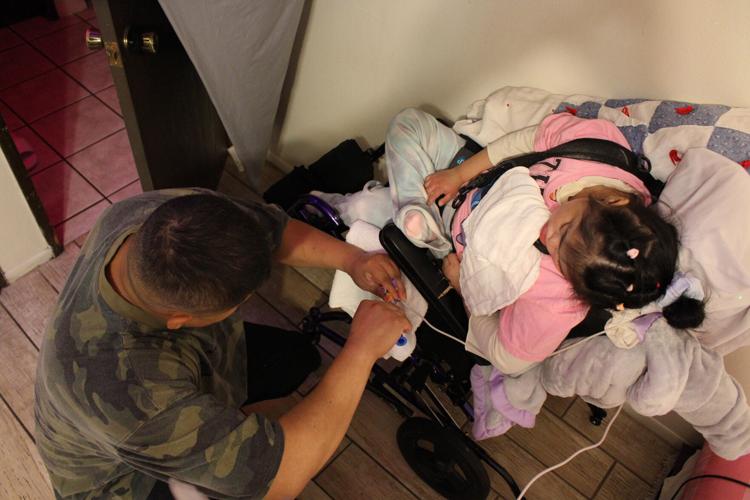
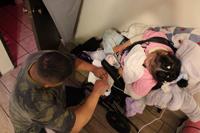
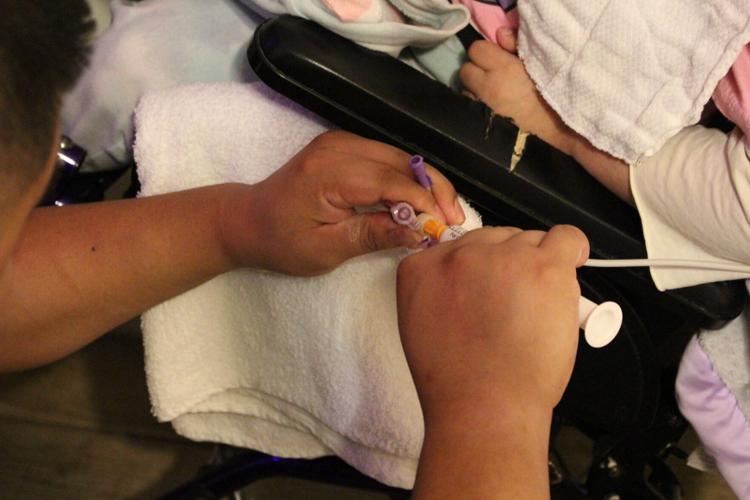
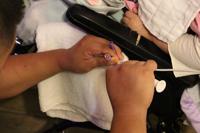





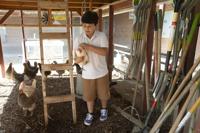

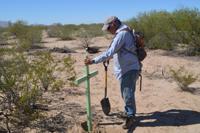




(0) comments
Welcome to the discussion.
Log In
Keep it Clean. Please avoid obscene, vulgar, lewd, racist or sexually-oriented language.
PLEASE TURN OFF YOUR CAPS LOCK.
Don't Threaten. Threats of harming another person will not be tolerated.
Be Truthful. Don't knowingly lie about anyone or anything.
Be Nice. No racism, sexism or any sort of -ism that is degrading to another person.
Be Proactive. Use the 'Report' link on each comment to let us know of abusive posts.
Share with Us. We'd love to hear eyewitness accounts, the history behind an article.